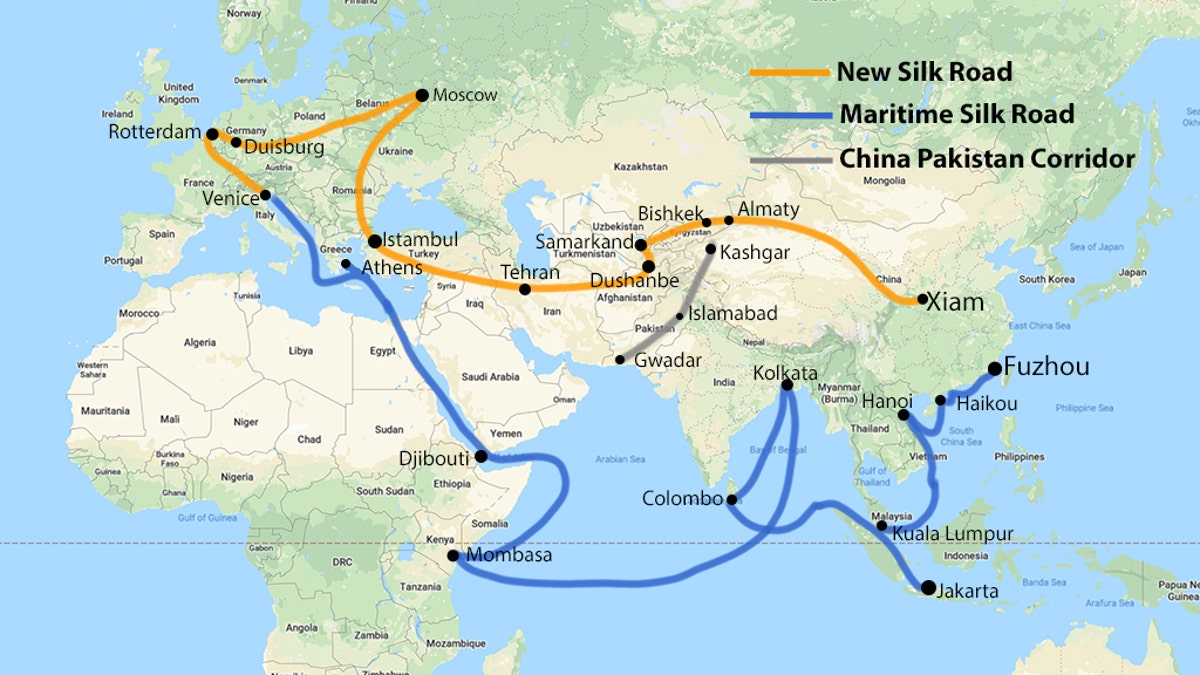Rep. Waltz exposes loophole that could funnel $50B in U.S. funds to China's regime
Michael Waltz explains his proposed legislation to stop U.S. retirement funds from investing $50 billion into China's stock exchange and state owned companies
China’s "Belt and Road Initiative" (BRI) is a planned multitrillion-dollar infrastructure program that is intended to link China with more than 100 countries through railroad, shipping and energy projects.
The BRI will recreate the Silk Road, an old network of trading routes between the East and the West, by investing large sums of money into other countries to build such infrastructure projects.

China's planned Belt and Road Initiative. (SOURCE: Chinese Government)
First announced by President Xi Jinping shortly after his election in 2013, the project will cost trillions of dollars in investment and is expected to be completed later this century. It is widely considered to be Xi’s pet project.
“China will actively promote international cooperation through the Belt and Road Initiative,” Xi said in 2017. “In doing so, we hope to achieve policy, infrastructure, trade, financial and people-to-people connectivity and thus build a new platform for international cooperation to create new drivers of shared development.”
The “belt” will consist of land routes connecting economies in Asia, Europe, Africa and Europe. The “road” -- while not actually a road -- will connect various ocean routes through these areas.
Already China has poured massive investments into other countries as part of the initiative. Proponents say the project will strengthen ties between Beijing and emerging markets while lifting developing nations out of poverty. However, critics of the BRI say it is part of China's desire to achieve trade dominance and control in order to compete with the United States.
Still, much about the project remains shrouded in secrecy. Some critics have even accused China of engaging in so-called debt-trap diplomacy, whereby countries unable to pay their debts must concede to China’s demands and participate in the initiative.
CLICK HERE TO GET THE FOX NEWS APP
More recently the project has been hampered by the COVID-19 pandemic, which originated in the Chinese city of Wuhan. According to official data released in early April, China’s economy -- the second largest in the world -- has shrunk nearly 7 percent as a result of the pandemic.









































